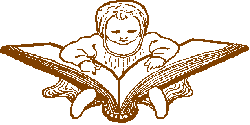
PSYCHOHISTORY
Articles & Texts
[Books texts] [Journal Articles] [Charts] [Prenatal]
[Trauma Model] [Cultic] [Web links] [Cartoons] [Other]
 |
Digital
Archive of PSYCHOHISTORY Articles & Texts [Books texts] [Journal Articles] [Charts] [Prenatal] [Trauma Model] [Cultic] [Web links] [Cartoons] [Other] |
by: Seymour Byman
Special Issue
"On Writing Childhood History"
The Journal of Psychohistory 16 (2) Fall 1988
My specialty is sixteenth-century martyrdom. For years, I published articles on the causes for martyrdom. And for years I was blissfully ignorant of the martyr's childhood. It was with the publication of an article in The Harvard Theological Review that I became aware of the defect of this omission of childhood history.
In a study of the martyr John Bradford, I examined the overwhelming sense of guilt which drove Bradford to suicide. Re-reading my article a year after its publication, I felt dissatisfied with it. I wondered what was the psychogenesis of Bradford's depression. What were the childhood roots of Bradford's extreme melancholia? I did not know. The Harvard Theological Review might be satisfied with my article, but I was not. How on earth could I discover what Bradford's childhood might be like?
I despaired of ever discovering anything on childhood. But fortunately, I came into contact with Lloyd deMause. DeMause opened up the subject of childhood history to me. He gave me pages and pages of references on childhood history. I now had hope. From that point on it was rather easy to find the voluminous Tudor works on childhood. The English-reforming martyrs had all too much advice on how to raise children. There were literally hundreds of books published during the sixteenth century with advice, usually destructive advice, on how to raise children.
You might think that an analysis of childhood sources would aid my publishing career. But it has had the opposite result. My investigations into childhood history have limited my publishing. Two factors hindered my publications. First, I will not publish material on Tudor martyrs that does not take Tudor childhood into account. Secondly, I now feel much more inadequate in doing psychological research. I have a difficult time integrating the childhood background and adult actions of Tudor subjects. This is true despite the fact that I have spent much more time trying to understand psychological theory than I did previously.
This reticence to publish has been accompanied by a diffidence to teach psychohistory. I began teaching psychohistory some fifteen years ago, teaching this subject at least once a year. Recently, I have been teaching it only every two to three years. This shrinking away from teaching psychohistory is in direct opposition to student response. Psychohistory is my students' favorite course, bar none.
To generalize on my reticence to teach and publish psychohistory is fraught with dangers. I can only surmise that it is because of the difficul-ty of the subject matter-both intellectual and psychological. Childhood history and its ramifications are too personal, too threatening, both to outside readers and the person "undergoing" the writing. Writing and researching in the history of childhood is like analysis. Nasty, uncomfortable subjects are brought up all too often. There is an urge to escape back into the womb, to the days of yore. But what if the historical past, like the individual past, is filled with nastiness and unpleasantness? There might not be a Golden Age.
Historians, like the general population, have a need for a rigidly understandable past, filled with good heroes and bad villains. Psychohistorians who point out the sometimes-devilish motivation in society's heroes, and the sometimes-angelic motivations in society's villains, court the wrath of society.
During one of my speeches on the disturbed personality of martyrs, a distinguished professor of history could take it no longer, and burst out in front of a large audience: "Professor Byman, is nothing sacred? Are there no heroes?" I could only answer, "No!"
To do an adequate study of the human past we must understand Freud's dictum that "The child is father to the man.'' We must also realize that as psychohistorians we will be criticized much more severely than other historians. Hazards lurk at every turn. Critics arc uncomfor-table with this method; it is personally disturbing to the researcher. But we must persevere. We must continue to examine every clue regarding childhood. Otherwise our research will be as ''childish'' as much of traditional research.
Seymour Byman, Ph.D. teaches history at Winona Stare University, Winona, MN 55981
Special Issue "On Writing Childhood History"
The Journal of Psychohistory 16 (2) Fall 1988
 |
Digital
Archive of PSYCHOHISTORY Articles & Texts [Books texts] [Journal Articles] [Charts] [Prenatal] [Trauma Model] [Cultic] [Web links] [Cartoons] [Other] |
To report errors in this electronic
transcription please contact:
[email protected]